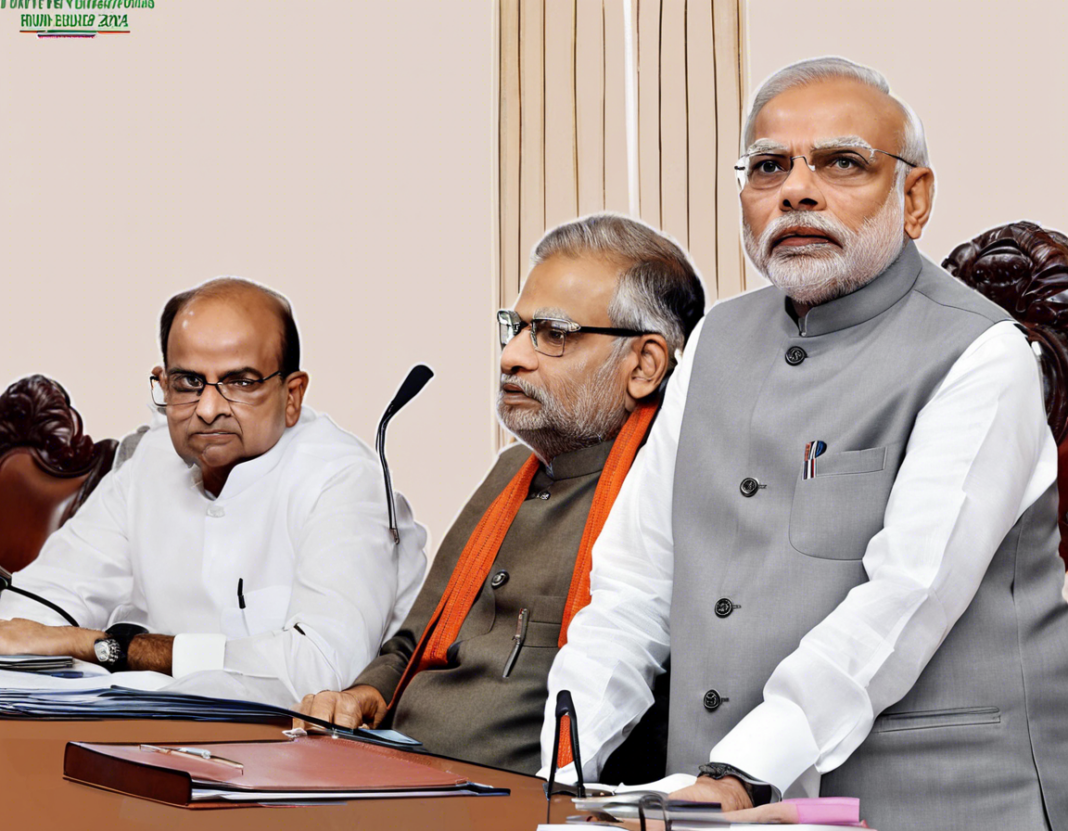The Union Budget holds paramount significance in shaping the economic trajectory of a country for the forthcoming financial year. It is a comprehensive statement of the government’s finances, outlining its revenue and expenditure, as well as its policy priorities. The Union Budget 2024-25 carries immense weight as it sets the tone for economic policies, reforms, and allocations for sectors critical to India’s growth and development.
Understanding the Union Budget
The Union Budget is presented by the Finance Minister in the Parliament and comprises two components:
-
Revenue Budget: This includes the government’s revenue receipts and expenditure. It reflects the current financial year’s revenue position and estimates for the upcoming fiscal year.
-
Capital Budget: This comprises capital receipts and payments, such as investments in infrastructure, land, machinery, etc.
Significance of the Union Budget 2024-25
-
Post-Pandemic Recovery: The Budget is expected to focus on reviving the economy post the COVID-19 pandemic, with measures aimed at boosting consumption, investment, and overall growth.
-
Infrastructure Development: Given the emphasis on infrastructure in recent years, the Budget is likely to allocate significant funds towards the development of roads, railways, airports, and other critical infrastructure.
-
Healthcare and Education: Enhancing healthcare infrastructure and improving access to quality education are expected to be key areas of focus in the Budget.
-
Sector-specific Reforms: The Budget may introduce reforms in sectors like agriculture, manufacturing, and services to drive sustainable growth and employment generation.
Expectations from Budget 2024-25
-
Tax Reforms: There is anticipation around potential changes in tax slabs, incentives for taxpayers, and simplification of the tax structure to spur economic growth.
-
Boost to Manufacturing: Measures to bolster manufacturing activities, promote Make in India initiatives, and enhance exports are likely to be included in the Budget.
-
Digital Transformation: Investments in digital infrastructure, cybersecurity, and promoting digital payments are expected to feature prominently in the Budget.
-
Sustainable Development: Emphasis on sustainable development practices, renewable energy, and environmental conservation is expected to align with global climate commitments.
Impact on Different Sectors
-
Automobile: Reduction in import duties, incentives for electric vehicles, and measures to boost demand for automobiles could be announced.
-
Banking and Finance: Reforms in the banking sector, recapitalization of banks, and measures to enhance credit flow to different sectors are awaited.
-
Real Estate: Policies to boost the real estate sector, ease in compliance norms, and measures to address housing affordability issues are anticipated.
-
Healthcare: Increased allocations for healthcare infrastructure, introduction of health insurance schemes, and measures to strengthen the healthcare system are expected.
Frequently Asked Questions (FAQs) about the Union Budget 2024-25
- When will the Union Budget 2024-25 be presented?
-
The Union Budget is typically presented in the Parliament in the first week of February. The exact date for the budget presentation is usually announced in advance.
-
What is the significance of the Union Budget for the common citizen?
-
The Union Budget impacts individuals through changes in tax rates, government spending on key sectors like healthcare and education, and policies that influence overall economic growth and employment opportunities.
-
How does the Union Budget affect different sectors of the economy?
-
The budget allocates funds and announces policies that directly impact sectors like agriculture, manufacturing, services, healthcare, education, and infrastructure, among others.
-
What are some key terms to understand in the Union Budget document?
-
Terms like fiscal deficit, revenue deficit, capital expenditure, revenue expenditure, direct and indirect taxes, subsidies, and allocations towards specific schemes or projects are crucial to grasp the budget’s nuances.
-
What are the expectations regarding tax reforms in the Union Budget 2024-25?
-
There are speculations around potential changes in tax slabs, rationalization of tax rates, incentives for specific sectors like startups, and measures to enhance tax compliance and collections.
-
How does the budget address issues of employment and economic growth?
-
The budget outlines policies and allocations aimed at promoting economic growth, creating job opportunities, enhancing skill development, and supporting entrepreneurship and innovation.
-
What role does the Union Budget play in driving infrastructure development in the country?
-
The budget earmarks funds for infrastructure projects such as highways, railways, airports, ports, and urban development initiatives, thereby stimulating economic activity and enhancing connectivity.
-
How does the budget impact the rural and agricultural sectors?
-
Policies related to agricultural credit, price support mechanisms, irrigation facilities, crop insurance, and investments in rural infrastructure are crucial components of the budget’s focus on rural and agricultural development.
-
What is the significance of deficit numbers in the budget document?
-
Metrics like fiscal deficit and revenue deficit indicate the government’s borrowing requirements and its ability to meet expenses. Managing these deficits effectively is crucial for fiscal stability.
-
How can citizens engage with the budget process and understand its implications?
- Citizens can follow budget announcements through live coverage, read expert analyses, attend post-budget discussions, and evaluate how budget proposals impact their financial decisions and long-term planning.
In conclusion, the Union Budget 2024-25 is awaited with anticipation as stakeholders across sectors look forward to policy directions and allocations that will shape India’s economic landscape in the coming year. It is a comprehensive economic roadmap that not only outlines financial allocations but also reflects the government’s priorities, strategies, and vision for inclusive growth and development.

